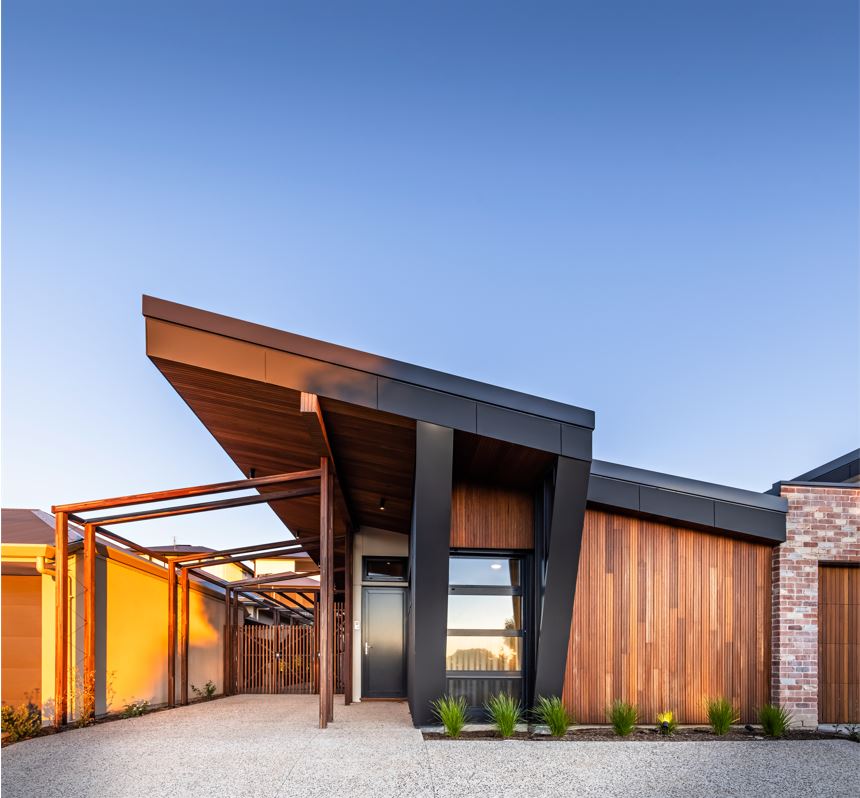
Sustainability is a core part of who we are at SUHO. Sustainability is highlighted in our mission statement and company values. It is a common ground for us as we try to make a difference, one step at a time, in an industry notorious for carbon waste and emissions. In a recent company meeting our director, Jim Woolcock, highlighted to us his drive to continue making ripples in the construction industry. He also spoke of his passion and vision as to why we do what we do here at SUHO.
SO…WHY DO WE DO WHAT WE DO?
The construction industry has been opting for cheap and quick builds for years and has often been the culprit for massive amounts of waste (both physical and carbon emissions). In 2018-2019, it was recorded that the Australian construction industry generated 2.7 million tonnes of waste. This was an increase of 22% from 2016-2017 and is now 16.8% of the total waste in Australia (Australian Bureau of Statistics, 2020).
McKinsey & Company developed a tool that changes how experts approach the carbon emissions debate. It provides an opportunity to discuss the cost of sustainability vs. its carbon emissions outcomes. As shown in the graph below, Building new energy-efficient buildings is one of the ways in which we can have a low cost with a decent impact on the tonnes of CO2 released into the atmosphere.

As the National Construction Code (NCC) continues to grow in its push for more energy-efficient buildings, it is important to recognise the growing impact the construction industry has on our planet’s future. With over 30,000 commercial building applications in 2021, the need for more buildings is going to continue. McKinsey’s abatement chart shows the positive impact that energy-efficient buildings have and can have on our emissions.
After spending years working in the construction industry and learning building physics at the University of Adelaide, Jim knew that there had to be something done that would decrease the number of environmentally harmful and low-quality builds in Australia. Jim’s vision is to create healthier homes and buildings that have a positive impact on the planet and the people that live in them. We are achieving this by providing a guiding hand for sustainable and energy-efficient buildings through design, advisory and optimisation services.
WHAT IS HAPPENING IN THE INDUSTRY TO CHANGE THIS?
Resources such as yourhome.gov.au allow the homeowner to have a greater understanding of how energy efficient and passive design works. Accreditations including Greenstar, NABERS, WELL, BESS, WUFI, PassiveHaus, and NatHERs take into account different aspects of a home and can be used to create better outcomes for the home and construction. Services such as Airtightness Testing & WUFI tie in the design and construction of a residential or commercial build to help ensure that a home is built and ventilated right for a healthier home. We encourage homeowners to consider what materials they use in their construction as well as the efficiency of their design.
As climate change continues to be highlighted each year as a more pressing issue, environmentally conscious building and design have been given a huge push in the construction industry to do better. With many industry developments available to assist in making a sustainable build more achievable to the everyday home builder or developer, it is great to see the changes being implemented to achieve the result in a positive carbon and energy-efficient result in the industry.
“What you do makes a difference, and you have to decide what kind of difference you want to make.” — Jane Goodall
Resources & Sources
Pathways to A Low Carbon Economy, McKinsey 2013
Waste Account - Services, Australian Bureau of Statistics 2019
Charting net-zero: Insights on what the transition could look like, McKinsey 2022
The net-zero transition: What it would cost, what it could bring, McKinsey 2021
Climate Math: What a 1.5-degree pathway would take, McKinsey 2022
Call for action: Seizing the decarbonization opportunity in construction, McKinsey 2021



